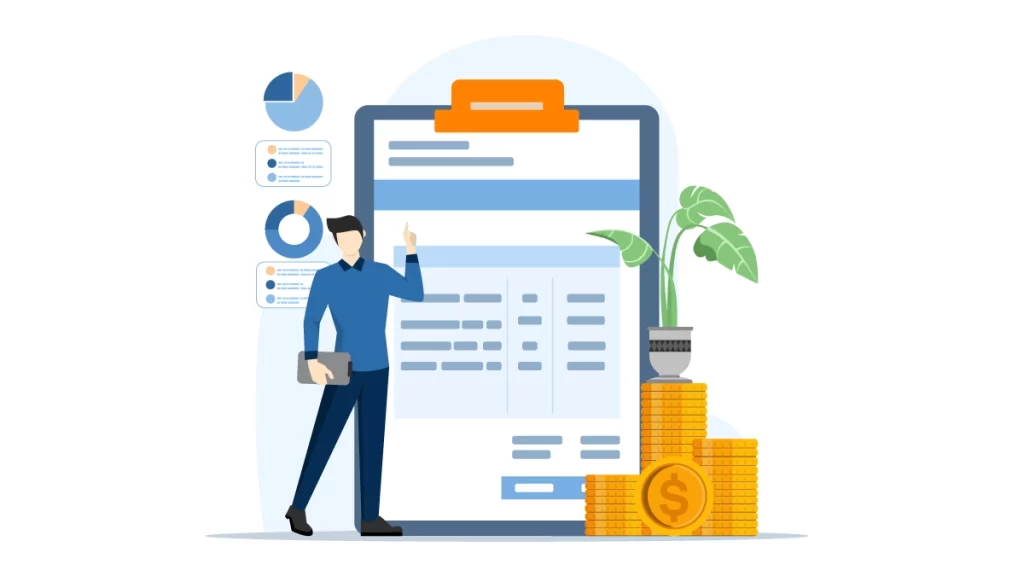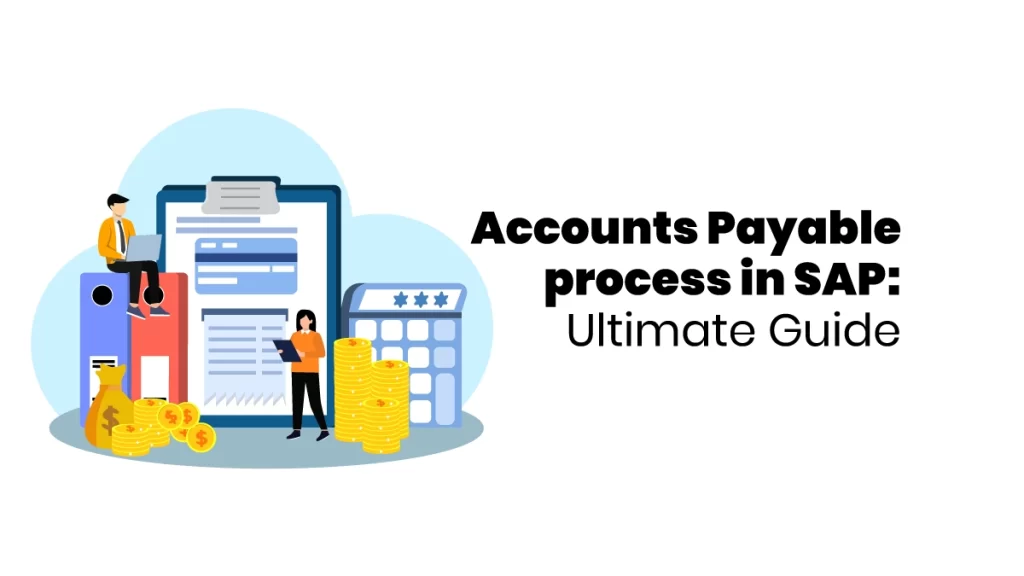In today’s complex financial world, managing accounts payable is crucial. Doing it right helps a company’s money matters and how smoothly it runs. Within the comprehensive resource planning system for businesses, the accounts payable process in SAP is pivotal in financial management. It equips businesses with strong tools to streamline the process of organizing bills and payments from vendors.
This blog discusses the accounts payable process in SAP, providing a detailed look at its main features and the best ways to use it.
What are Accounts Payable in SAP?
SAP Accounts Payable (FI-AP) is a tool that makes it easier for businesses to handle their accounts payable tasks. It keeps all the information about customers and invoices in one place and allows firms to use standard payment methods like checks, money orders, and bank transfers.
This tool is essential to SAP’s Financial Accounting and Materials Management systems. It helps users track and approve invoices and manage critical details such as vendor information, deliveries, and payments. SAP Accounts Payable also works with the Cash Management tool to help businesses better plan their cash flow.
The accounts payable process in SAP includes these steps:
- Creating invoices
- Processing invoices
- Receiving payments from customers
- Processing payments
- Reconciling invoices
Understanding SAP Accounts Payable Automation
The accounts payable process in SAP automation means using technology to perform more tasks automatically, reducing the need for people to do them by hand. This helps avoid mistakes in paying bills and and integrates vital accounting software with online networks for seamless transactions.
With this automation, companies can:
- Spot and fix mistakes in bills before they’re sent, making it faster to approve them.
- Automatically send emails to people who need to approve bills so they can see the details quickly.
- Keep track of digital bills and see if payments have been made through the online network.
- Speed up the process to make sure bills get paid on time.
- Make payments automatically on the correct date and quickly record what’s been paid.
- Make it easier to see and understand how bills are paid and managed.
- Schedule payments smartly to manage money better and grab discounts for paying early.

Why Use SAP Accounts Payable?
SAP Accounts Payable makes handling invoices easier. It automatically creates, checks, and tracks invoices, saving employees time from doing these tasks by hand. This frees up time for them to do more meaningful work.
With SAP Accounts Payable, companies can improve their handling of payments and invoices. It simplifies tasks in the AP department, connects well with other SAP systems, and can handle more invoices without needing extra people to do the job.
Here are a few main reasons to switch to SAP Accounts Payable:
- Easy Invoices: SAP AP makes creating and organizing invoices simpler for teams.
- Less Mistakes: Automated tools like Robotic Process Automation (RPA) and Machine Learning (ML) help prevent errors in the AP process.
- Better Records: With SAP Accounts Payable, it’s easier to keep track of all invoices and payments to suppliers, which helps the business make smarter decisions.
- One Place for Everything: Users can handle different invoices in the same spot, saving time and ensuring accuracy.
What do you need for setting up SAP accounts payable?
To use it well, you need a few teams:
Sorting Team
They organize invoices from suppliers, such as materials, finances, services, and employees.
Posting Team
They play a pivotal role by diligently entering the invoices into the system. In case of any errors, they take responsibility for temporarily holding the invoices and rectifying the mistakes.
Query and Payment Teams
The query team fixes invoice mistakes before posting them. Then, the payment team starts paying vendors by making payment requests.
Reconciliation Team
They review their payment history and check what vendors should be paid. If a vendor needs to be paid more, they ask for more. If a vendor has been paid too much, they fix it. These changes need approval first.
SAP Accounts Payable Purchase Orders
SAP Accounts Payable also handles purchase orders, which are essential documents companies use to order goods or services from suppliers legally. There are four types of purchase orders in SAP:
- Standard: Used for one-time purchases.
- Blanket: Used for purchases with uncertain delivery schedules.
- Contract: The materials required must be specified.
- Planned: Long-term agreements listing materials needed, costs, and approximate delivery dates.
The accounts payable process in SAP includes the Automatic Payment Program (APP). This unique program lets businesses make bulk payments to many suppliers at once. To start the APP, users use the SAP transaction code F110. They can then set specific parameters for the payments they want to make. Based on these parameters, the program creates a payment proposal. This proposal is sent to the accounts department for approval. If approved, the program makes the payments.
Overall, this process helps businesses manage the data they get from suppliers. It also makes reconciling this information with their payment records easier, improving efficiency and helping companies make better decisions. Each step in the P2P cycle process, from procurement to payment, is meticulously managed to ensure efficiency and accuracy throughout the entire transaction lifecycle.
Discover Finprov’s top-notch training programs to master SAP. Finprov Learning offers a flexible SAP course in Ernakulam customized to fit participants’ preferences with online and offline learning options. With experienced instructors, interactive sessions, and continuous 24/7 mentorship, Finprov ensures learners can confidently apply SAP S/4HANA in real-life situations, enhancing their professional capabilities. Our SAP S/4HANA course is tailored for finance and accounting professionals aiming for career growth. With hands-on sessions and practical examples, participants gain essential skills and deepen their understanding of SAP. Explore the benefits of Finprov’s SAP FICO course, where you’ll develop valuable expertise in financial accounting and unlock opportunities for success in the dynamic finance industry.





